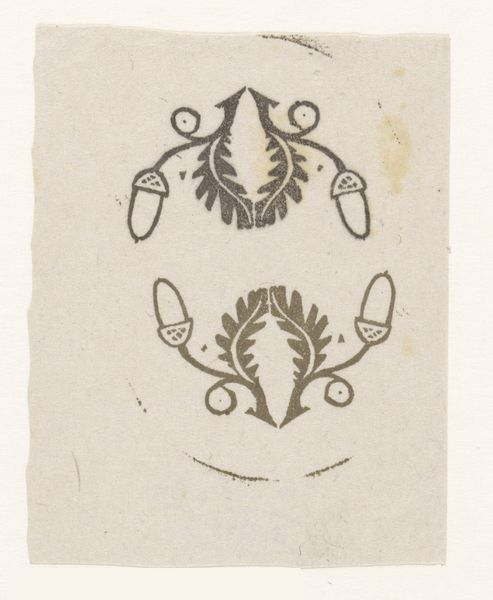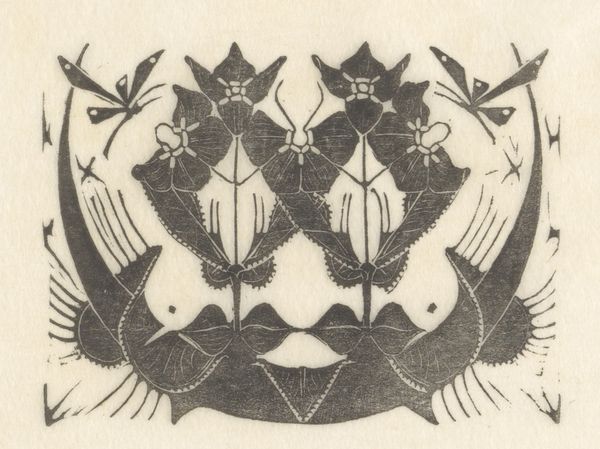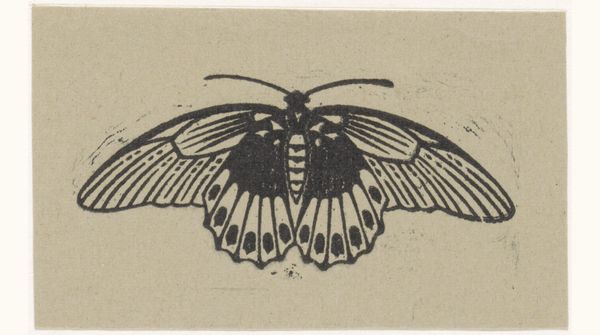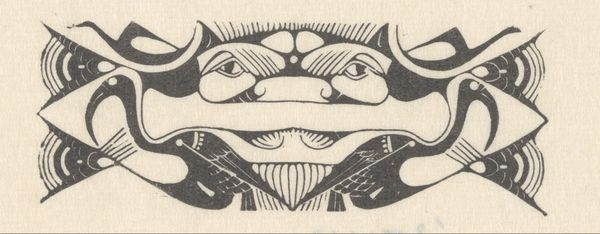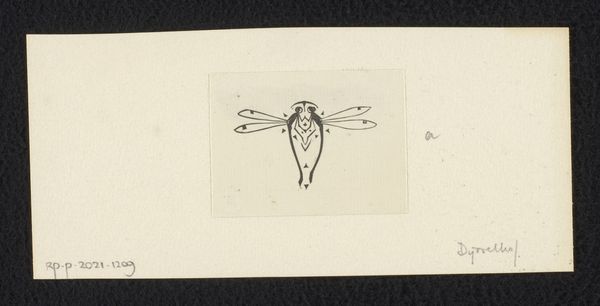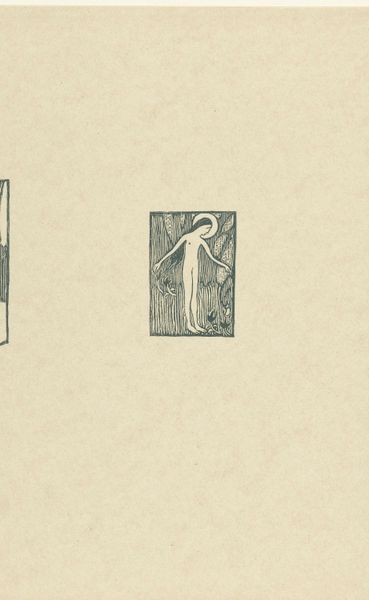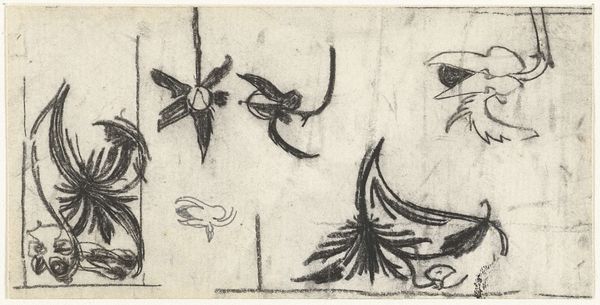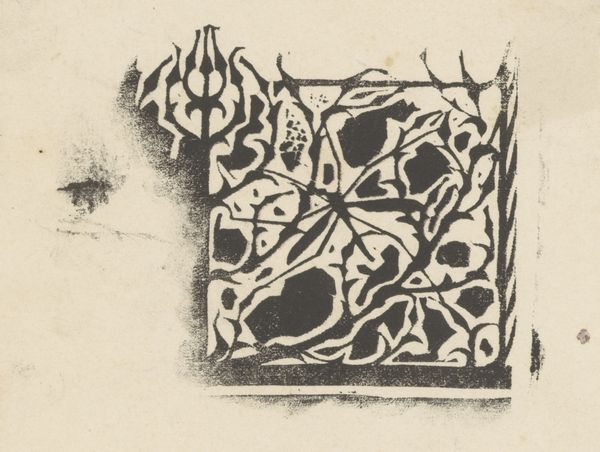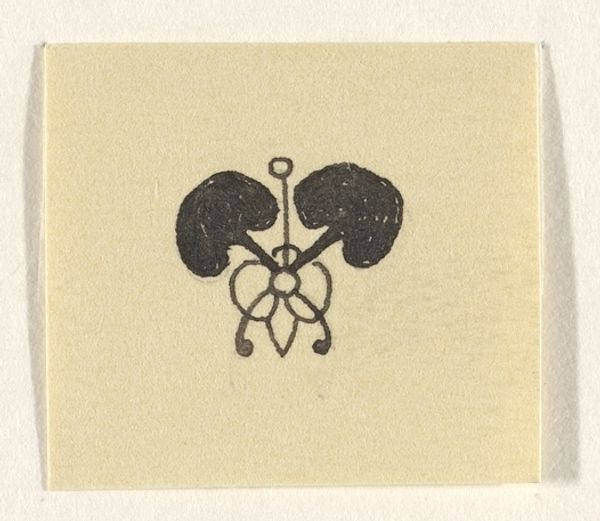
#
blue ink drawing
#
pen sketch
#
old engraving style
#
cartoon sketch
#
personal sketchbook
#
ink drawing experimentation
#
pen-ink sketch
#
pen work
#
sketchbook drawing
#
sketchbook art
Dimensions: height 168 mm, width 225 mm
Copyright: Rijks Museum: Open Domain
Curator: This piece, “Vignetten met libellen en steuren,” created by Gerrit Willem Dijsselhof between 1893 and 1927, showcases a delicate rendering of a dragonfly and sturgeons. Editor: It has a simple, almost whimsical quality. The repetition and symmetrical forms create a striking balance. What stands out to you from a materialist viewpoint? Curator: Well, what fascinates me is Dijsselhof’s choice of pen and ink on paper. He wasn't just creating a simple illustration, but was actually involved with textile and furniture design. Looking at this from that context, could it have been for an ornamental pattern in a rug or inlaid wooden panels, raising the value of labor through a connection to 'fine art?' Editor: Interesting. Thinking of it more from the symbolism: The dragonfly, a creature of transformation. And the sturgeon, linked to royalty. Are we seeing the symbolic unification of nature and power, the humbleness and majesty within each other, all within the black ink used, making these creatures uniform on this paper? Curator: Or, considered practically, Dijsselhof used easily attainable and relatively cheap ink. Ink's availability speaks to the accessibility of art making. He takes these ‘lowly’ materials, paper and pen and elevates them, repurposing them into a sketch. The image also speaks of the industrial print processes he likely oversaw—how each element has a cost. Editor: Perhaps. But the deliberate and refined way he's created them lends toward a deliberate sense of something more profound, even archetypal. The sturgeons' endless, looping configuration certainly hints at infinity. Dijsselhof presents themes, using nature and its infinite connections for viewers. Curator: I still lean towards it being about recontextualization and elevated materials that can connect everyday people to his works. The labor of such precise linework in what could've been the model for mass production adds another layer too. I feel like we might agree it asks more than answers here. Editor: It leaves an air of mystery as a timeless dance of nature's enduring symbols and interpretations, doesn't it? Curator: Yes, whether ornamental models or studies of universal concepts.
Comments
No comments
Be the first to comment and join the conversation on the ultimate creative platform.
